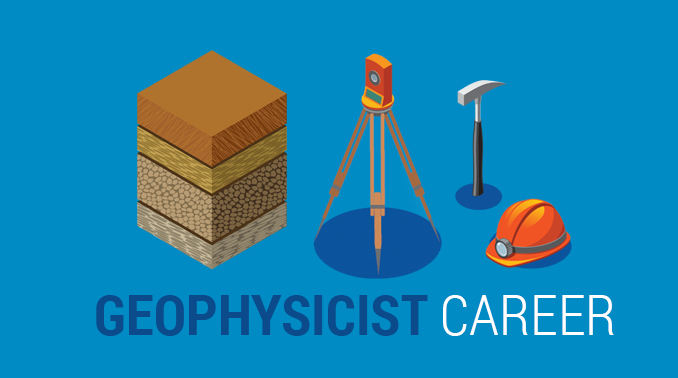All Categories
Featured
Table of Contents
Geophysics Definition & Meaning in Calista Oz 2022

Other possible geophysicist majors that aren't geophysics or geoscience consist of: Atmospheric sciences and meteorology Chemical and physical oceanography Earth science Environmental science Hydrology and water resources science Products science By making any geophysicist degree, and by taking the required geology courses, you should receive an entry-level position as a geoscientist or geophysicist.
Eventually, trainees need to discover: a branch of geology that looks at the various aspects of minerals, including chemical structure, internal crystal structure, and physical residential or commercial properties. the study of rocks and the procedures and conditions that form and change them with time. There are a few neighborhoods in this branch of geology, consisting of igneous, metamorphic, and sedimentary rocks.

This field analyzes structural rock features such as cleavage, faults, joints, and small folds. They must likewise learn the computer system abilities essential to: examine data produce digital designs and maps operate geoscientists' software Trainees must likewise take advantage of all chances to gain real-world experience. Ambitious geophysicists need to expect to spend time learning: in the class in the field in labs Clearly, skills taught in the classroom are really essential for striving geophysicists.
Geophysics & Geophysical Surveys in Osborne Park Oz 2020
Geoscientists invest a lot of their time outside when working in the field, so they must possess "outside skills" like outdoor camping and operating boats, aircraft, and other cars. Because they invest so much time in remote places, it's important that geophysicists also have the physical endurance to bring essential equipment on their hikes to places of research study.
The job offers: a high average and top incomes a high rate of personal satisfaction amongst geophysicists low work tension positive job outlook Further info on earnings potential and job outlook is detailed listed below. For trainees aiming to land an entry-level role as a geoscientist or geophysicist, it takes four years, or the time needed to complete a bachelor's degree in geophysics or a related discipline.
Some research study positions in geophysics need doctoral degrees. Also, if you prepare to teach at a college or university, you need to make a Ph - Frequently Asked Questions in North Lake Aus 2023. D. in geophysics or an associated field. The time it requires to make a Ph. D. differs by organization and program, however it generally takes four to six years beyond the bachelor's degree.
Hydrographic And Geophysical Surveys in Hazelmere Aus 2021
Many employers need candidates to have a bachelor's degree in geophysics or a closely associated discipline for all entry-level positions. And, in many cases, companies need a master's degree. As an outcome, there's no chance around the degree requirements for ending up being a geophysicist. The majority of employers will anticipate or require a practicing geologist to be accredited for positions beyond those at the entry level.
Currently, 31 states need licensing for geologists, although licensing is not constantly needed, specifically for entry-level work. The states that do problem licenses use the Fundamentals of Geology Examination (FGE), which is administered through the National Association of State Boards of Geology (ASBOG). Now that you understand which degree for geophysicist tasks you need, you'll need to land a task, and it's essential to learn just how much cash you can make in this career.
According to BLS, the median annual wage for geoscientists is $93,580. The lowest 10% of earners earn less than $52,000, while the greatest 10% make more than $201,000 annually. Wages vary by market type and geographic place. According to BLS, specific industries offer greater incomes for geoscientists, and in some cases, they provide higher-than-average revenues.
Geophysical Survey - Mining Fundamentals in Mount Claremont Oz 2023
In reality, mining, quarrying, and oil and gas extraction uses over $32,000 more every year than the average yearly wage for this profession. The federal government, too, provides over $10,000 more in incomes than the nationwide average for geoscientists. In addition to industry type, geographic area can considerably affect revenues for this profession.

The top-paying states and their annual mean wages, according to the BLS, consist of: Texas $166,720 Oklahoma $149,630 Pennsylvania $120,590 Hawaii $120,130 Colorado $107,260 These 5 top-paying states offer much higher earnings than the average for this occupation. Salaries for geoscientists in Texas are over $73,000 greater than the national average.
It needs to come as no surprise that the majority of these high-paying locations remain in Texas and Oklahoma, but some are found in California, Louisiana, and Colorado. The top 10 highest-paying city areas for geoscientists are: Houston-The Woodlands-Sugar Land, Texas: $188,400 Tulsa, Oklahoma: $186,490 Midland, Texas: $167,040 Odessa, Texas: $147,080 Oklahoma City, Oklahoma: $145,350 Bakersfield, California: $130,080 Urban Honolulu, Hawaii: $124,470 New Orleans-Metairie, Louisiana: $121,030 Washington-Arlington-Alexandria, DC, VA, MD, WV: $120,180 Denver-Aurora-Lakewood, Colorado: $116,910 For some geoscientists and geophysicists, residing in a metro city is not as appealing as living in a smaller neighborhood.
Latest Posts
What Should I Do To Be A Geophysicist? in Subiaco WA 2022
Geophysicist - Jobs And Skills Wa in Midland Western Australia 2023
Career Guide: Geophysicist in Tapping Aus 2022